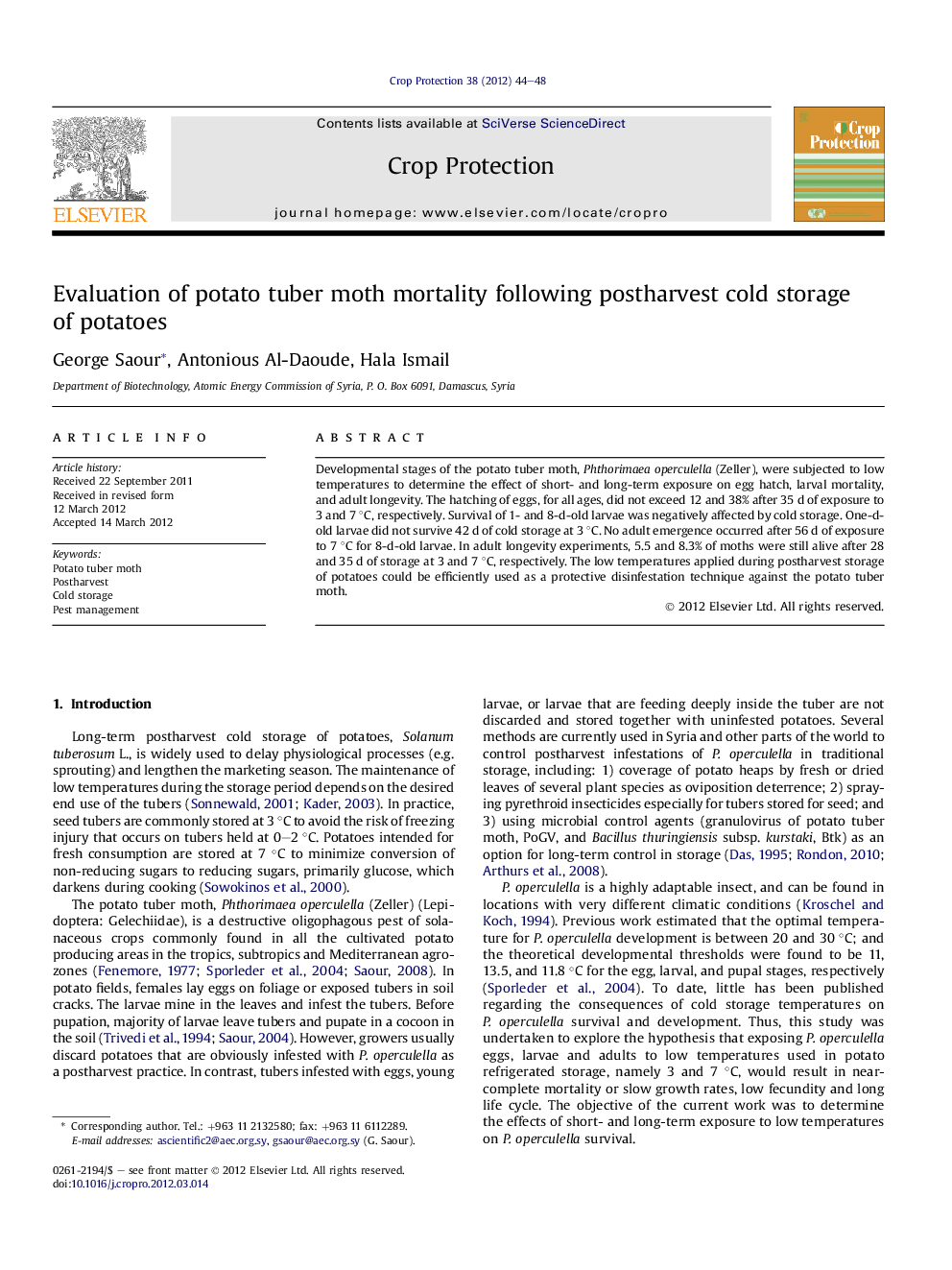| Article ID | Journal | Published Year | Pages | File Type |
|---|---|---|---|---|
| 4506423 | Crop Protection | 2012 | 5 Pages |
Developmental stages of the potato tuber moth, Phthorimaea operculella (Zeller), were subjected to low temperatures to determine the effect of short- and long-term exposure on egg hatch, larval mortality, and adult longevity. The hatching of eggs, for all ages, did not exceed 12 and 38% after 35 d of exposure to 3 and 7 °C, respectively. Survival of 1- and 8-d-old larvae was negatively affected by cold storage. One-d-old larvae did not survive 42 d of cold storage at 3 °C. No adult emergence occurred after 56 d of exposure to 7 °C for 8-d-old larvae. In adult longevity experiments, 5.5 and 8.3% of moths were still alive after 28 and 35 d of storage at 3 and 7 °C, respectively. The low temperatures applied during postharvest storage of potatoes could be efficiently used as a protective disinfestation technique against the potato tuber moth.
► Mortality in the potato tuber moth (PTM) was evaluated following cold storage of potatoes. ► Cold storage for 49 days at 3 °C is required to inhibit PTM developmental stages. ► Sixty three days of exposure at 7 °C is needed to obtain the same detrimental effects. ► Low temperatures used for potatoes storage could be efficient tool to reduce PTM infestations.
